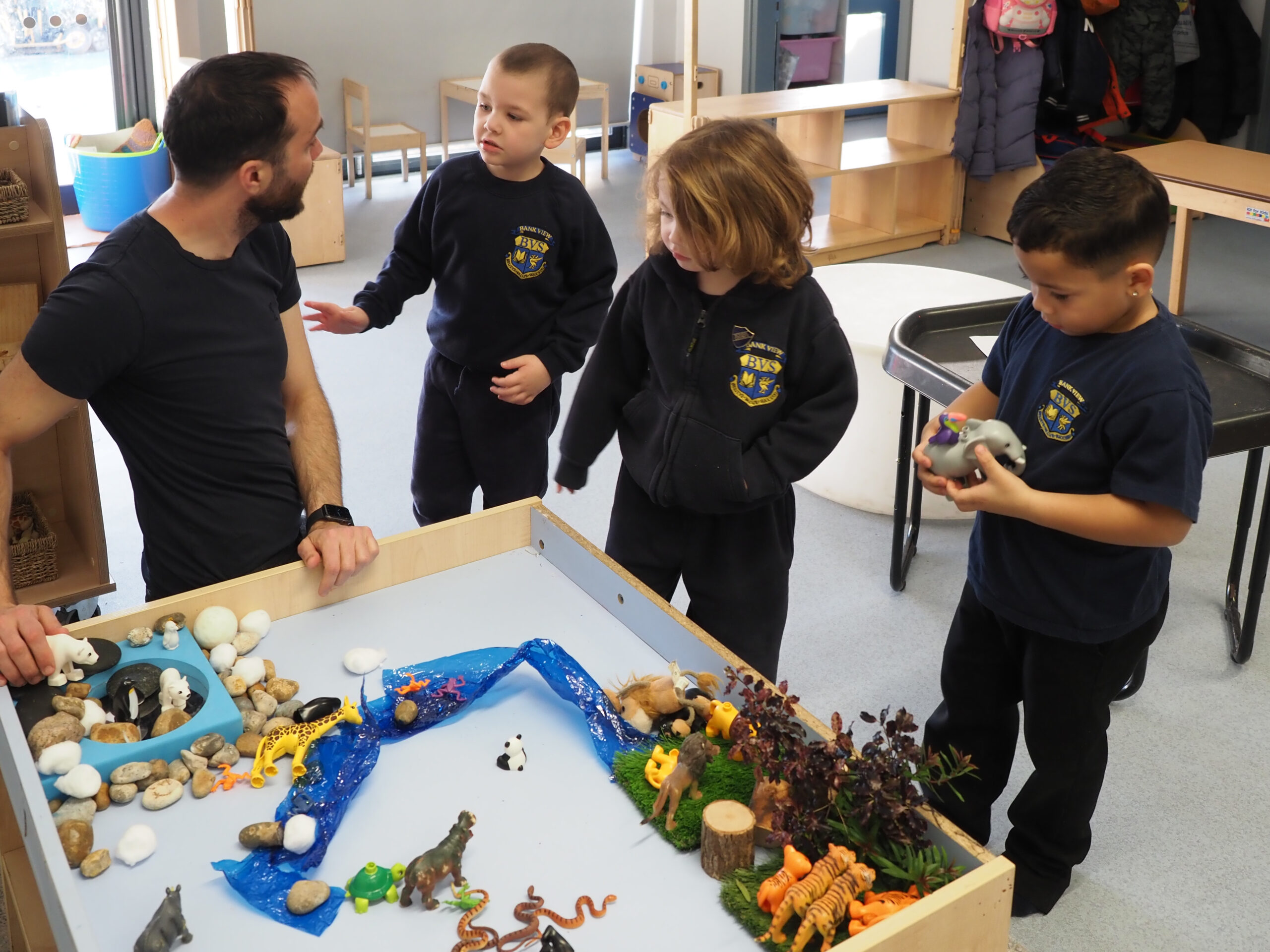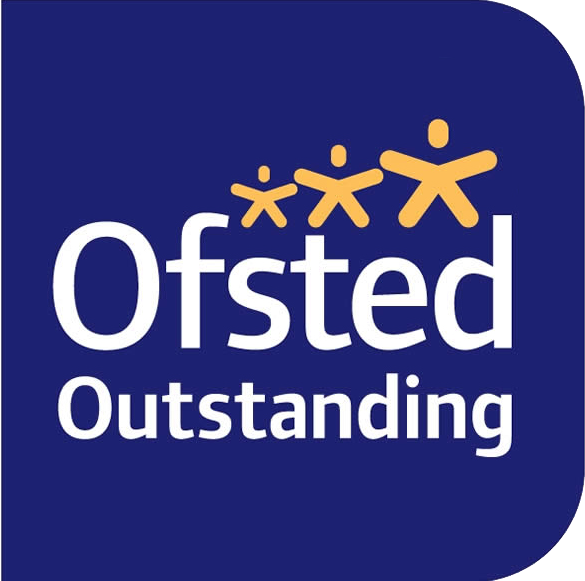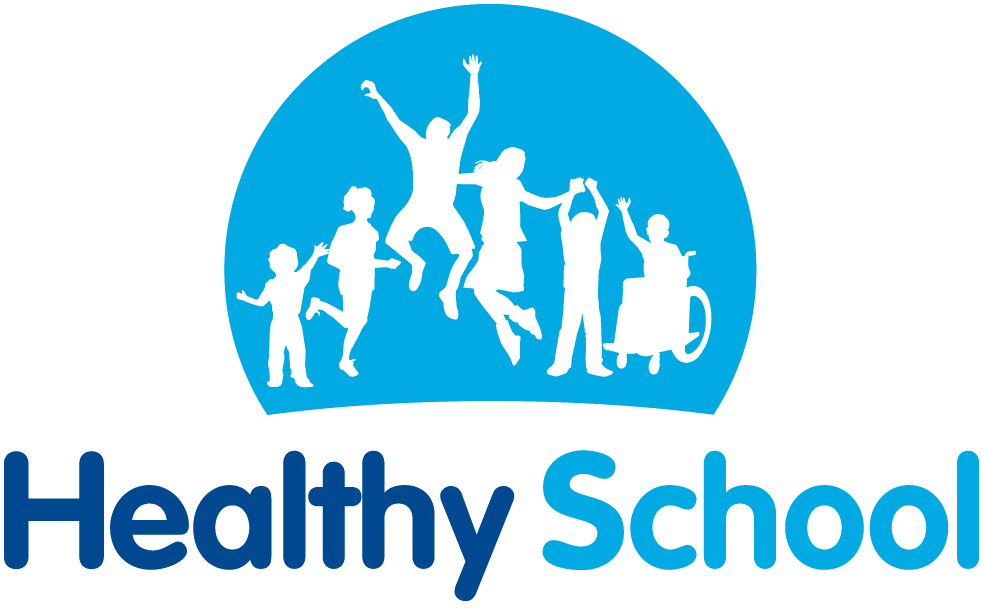What is EYFS?
We opened an EYFS class in September 2023 for this academic year at the request of the LA. There are currently 6 pupils in this provision. The Early Years department at Bank View follows the Early Years Foundation Stage (EYFS) curriculum which is based upon the Development Matters document. The EYFS has three sections:
1: Learning and development
The curriculum is based on the 7 areas of learning which fall within two categories – Prime and Specific. Through these areas, we promote the learning and development of all children in our care by creating opportunities for learning to take place, based on children’s individual needs and interests. The emphasis is on learning through play because ‘play is essential for children’s development, building their confidence as they learn to explore, relate to others, set their own goals and solve problems’ (EYFS 2021).
There are three prime areas of learning, which are particularly important for children’s development and future learning:
- communication and language
- physical development
- personal social and emotional development
There are four specific areas of learning, through which the prime areas are strengthened and applied:
- literacy
- mathematics
- understanding the world
- expressive arts and design
| Prime Areas of Learning | Communication and language | Providing an environment for young children to express themselves and speak and listen in a range of situations allows them to develop their language and communication skills. | |
| Physical development | We all know that young children often love to be active, but they also need to understand that continued physical activity as well as healthy food choices are important, and why. | ||
| Personal, social, and emotional development | This area helps to shape children’s social skills and develops respect and an understanding of their different feelings. | ||
| Specific Areas of Learning | Literacy | Children need to discover phonemic awareness – the ability to hear and identify different words and sounds, and also to start reading and writing. | |
| Mathematics | Children need to be guided in developing skills with numbers and calculations, as well as being able to describe shapes, spaces, and measures. | ||
| Understanding the world | This involves children making sense of things by observing and exploring everything from the places they spend time to the technology and other things that they use. | ||
| Expressive arts and design | Activities like drawing, playing with paint, instruments or technology all give children the chance to express themselves and learn new things. |
At the core of the EYFS framework are the Characteristics of effective learning:
| Playing and Exploring | Active Learning | Creating and Critically Thinking |
| Children are encouraged to play with what they know and to develop the confidence to “have a go.” We are committed to offering children an experience that will foster a love of learning within a safe and stimulating environment. We build secure and trusting relationships which allow our children to flourish. | The indoor and outdoor environment is carefully resourced so that children become motivated to be independent learners. Children are supported to become more resilient: to keep on trying and achieve what they set out to do. Children become more engaged; showing high levels of energy and fascination. | As children engage in a broad range of activities in Early Years, they begin to actively think about the meaning of what they are doing. Children will begin to generate new ideas, make links between experiences and learning and become problem solvers. |
2: Assessment
Learning does not progress in a set sequence of events which is why the staff at Bank View will observe children constantly and use their professional knowledge to identify the areas of learning that a child is secure in, what they need to know next, and any areas where they may need additional support. Educators at Bank View will recognise and interpret where each individual child is in their learning journey and will provide a personalised pathway for future learning.
The four guiding principles
There are four guiding principles in the EYFS. These principles must be used when implementing the above 7 learning and development areas:
- That every child is unique.
- That every child can learn to be strong and independent through positive relationships.
- Children learn and develop best in enabling environments.
- Children develop and learn in different ways and at different rates.
During the first few weeks at Bank View, we will find out what the children already know and can do and use this information to help us develop an individual learning programme for each child.
Each child has their own electronic ‘Learning Journal’ based on Seesaw, where we keep evidence of their learning through photographs and videos of what they have been doing. As this is web-based parents have full access to these from home. We want parents and carers to be involved fully to ensure we can gain a holistic view of each child; therefore, we encourage parents/ carers to upload photos, videos and comments to their child’s journal.
During each term in Early Years, information, observations and work samples are gathered to support a judgement as to whether the child is not meeting outcomes, meeting outcomes with support or meeting outcomes with independence. This can be in the form of targeted activities relating to the child’s target, modelling activity within the areas, modelling how to use the different areas or what the children show during child-initiated activities.
Children’s progress is discussed and shared with parents at parents’ evening, during annual reviews and is a detailed part of the end-of-year report.
3: Safeguarding and welfare requirements
At Bank View, we promote good health, manage behaviour, maintain records and follow policies and procedures (EYFS 2021) to ensure that our pupils are happy and safe whilst in our care.
EYFS PURPOSE
At Bank View, our ethos is based on a determination that every child deserves the best start regardless of their background or experiences.
The Early Years curriculum underpins all our teaching and learning. We plan a huge range of activities to create awe and wonder about the world in which we live. We consider all of our little learners and the stage at which they are working. We provide environments for the children to thrive in and nurture the most vulnerable.
INTENT
The children are nurtured and encouraged to explore both indoor and outdoor learning spaces and learn through their play. Regular group times give the children opportunities to learn new skills which they can practice and develop skills in their independent learning time.
Lessons are carefully planned with pupils’ interests at heart with the development of the prime areas for learning embedded. The curriculum is planned with half-termly themes, with pupil interests considered and used as stimuli for learning.
IMPLEMENTATION
Exciting themes and irresistible learning opportunities are planned for pupils at Bank View. Practitioners are proud of the curriculum and have designed a curriculum to excite and engage learning. A range of activities are always on offer in the environment and give the children opportunities to practice their growing skills and knowledge as they play. Pupils receive a personalised pathway of learning, which aims to meet individual targets as detailed on individual EHCP plans.
Environment – staff support the children’s stage of development through a range of practical play-based activities in an environment which is nurturing and supportive. Children are supported through the environment with a wide range of sensory and tactile equipment to help their sense of enquiry and enthuse their learning. A specialist team of highly skilled Learning Assistants support children with their learning.
Pupils with specific speech and language development skills are supported by Speech and Language Therapists (SALT) at school, who provide activities and advice for the team to implement and support the development of skills. Some children need specialist intervention and are referred to Speech and Language Services.
Pupils are taught about physical and emotional health, safety and well-being through class assemblies and circle times and continuous provision. They will learn about why it is important to eat, drink, rest, exercise and be kind to each other. Children are learning to respect and celebrate each other’s differences and to build diversity beyond their immediate experience through a range of activities and experiences that teach them effectively about people in the wider world. We provide our youngest learners the chance to learn about their immediate environment through a range of exciting outdoor activities.
Learning journeys are used to ensure that every child reaches their full potential, which is our ultimate aim. Evidence is recorded using the online platform Seesaw and is shared with parents.
Our children have very little knowledge of the world around them when they begin school, so a range of visits and visitors are planned to support development in this area. We aim to provide pupils with a wide range of local visits to introduce them to life beyond Bank View.
Safeguarding our pupils is embedded into our everyday practice. All staff are safeguarding trained and follow policies and procedures to ensure that all pupils are safe and happy while at school.
IMPACT
Our curriculum is child-centred and specific to each child’s needs, abilities and interests. Much of our learning is experiential, sensory and hands-on which ensures we are fully involved and engaged. We work hard on developing concentration skills and developing attention from starting school to provide our children with the skills for life that they will need to make great progress on their individual journeys throughout school. Provision is made through the timetabling and curriculum to ensure every child’s learning is maximised. Children receive interventions to support progress and development, as well as opportunities to meet EHCP targets. Carefully planned support is provided to support pupils with the transition. Staff aim to ensure all children develop their characteristics for learning as they progress through the school. Activities encourage play, learning, exploration, concentration and resilience. Ultimately through nurture and encouragement, we aim for all children to demonstrate learning behaviours to take them forward into a more formal setting as they move through school.
Overview – Understanding the World
Overview – Communication-and-Language
Overview – Expressive Art and Design
Overview – Physical Development








